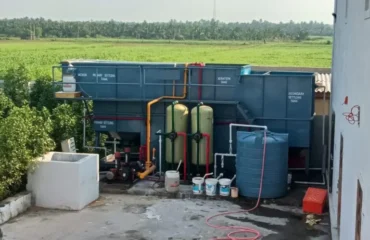Introduction
Bhopal, with its diverse industrial sectors, recognizes the critical importance of responsible wastewater management. An Effluent Treatment Plant (ETP) in Bhopal plays a pivotal role in treating industrial effluents before discharge, ensuring environmental compliance and sustainability.
Importance of Effluent Treatment
Industrial processes generate wastewater containing pollutants and contaminants that pose significant environmental and health risks if not properly treated. An ETP in Bhopal is instrumental in removing these pollutants, making the water safe for discharge into the environment or for reuse.
Key Components of an ETP
- Primary Treatment: Involves physical processes like screening and sedimentation to remove large solids and debris.
- Secondary Treatment: Utilizes biological processes such as activated sludge or biological filters to break down organic matter.
- Tertiary Treatment: Involves advanced filtration methods like membrane filtration or chemical processes to remove remaining contaminants and pathogens.
Benefits of an ETP in Bhopal
- Environmental Protection: Ensures that industrial effluents meet regulatory standards, preventing pollution of water bodies and soil.
- Resource Conservation: Allows for the reuse of treated water in industrial processes, reducing freshwater consumption and promoting sustainability.
- Health and Safety: Minimizes the impact of industrial activities on public health and the environment, creating a safer community.
Role of Technology in ETPs
Modern ETPs in Bhopal leverage advanced technologies such as:
- Membrane bioreactors (MBRs) for efficient biological treatment.
- Reverse osmosis (RO) and ultrafiltration (UF) for advanced filtration.
- Automated monitoring and control systems for optimized operation and energy efficiency.
Challenges and Solutions
- Cost: Initial investment in ETP infrastructure and technology can be substantial, but long-term operational savings and environmental benefits justify the expenditure.
- Regulatory Compliance: Continuous monitoring, adherence to standards, and regular audits ensure compliance with environmental regulations.
- Public Awareness: Educating industries and the community about the importance of wastewater treatment fosters support for ETP implementation and sustainability initiatives.
Conclusion
An Effluent Treatment Plant in Bhopal is indispensable for maintaining environmental integrity, protecting public health, and fostering sustainable industrial practices. By embracing cutting-edge technologies and best practices in wastewater management, ETPs contribute significantly to a cleaner and healthier environment for present and future generations.


